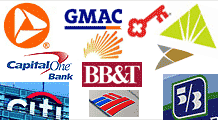Senate OKs credit card curbs
90-5 vote sends to House a bill that curtails fees and rate hikes. Unrelated provision boosts gun rights. Measure could go to Obama this week.
WASHINGTON (CNNMoney.com) -- The Senate on Tuesday voted 90-5 to approve a bill that will make it tougher for credit card issuers to raise fees and interest rates starting early next year.
The bill includes an unrelated measure that would allow people to carry concealed weapons into national parks.
The bill now goes to the House, which is expected to take it up on Wednesday and pass it before the weekend. The bill would get to President Obama's desk before Memorial Day, as he called for.
"To have the industry reaching and be as abusive to consumers, it needed to stop and it needed to change," said Sen. Chris Dodd, D-Conn., a bill sponsor.
The legislation is moderately tougher on card issuers than are new Federal Reserve rules that take effect in July 2010.
The Senate's bill would take effect in nine months and make it harder for people under age 21 to get credit cards. It would also ban rate hikes unless a consumer is more than 60 days late - and then restore the previous rate after six months if minimum payments are made.
The banking industry decried the bill, saying it would exacerbate the credit crisis and force banks to drop some risky credit card holders.
"We are concerned that the Senate bill will have a dramatic impact on the ability of consumers, students, and small businesses to obtain and use credit cards," said American Bankers Association president Edward Yingling
The credit card legislation has been a long work in progress. The House passed a bill in 2008 and again earlier this year. The legislation, which stalled in past years, was propelled by public outrage and pressure by President Obama.
"I'm very glad to have these reforms within reach at long last," said the bill's House sponsor, Rep. Carolyn Maloney, D-N.Y. "To Sen. Dodd's credit, he has enhanced my bill in a few areas - especially in extending from 30 to 60 days before penalty rate hikes can kick in on existing balances."
Maloney added she thought it "unfortunate," that the measure to allow concealed weapons in national parks remained on the credit card bill, especially since Memorial Day kicks off the summer season at national parks. She planned to vote against the gun provision but said it shouldn't block the bill's final passage.
In recent few months, credit card companies have been raising fees and interest rates. From November 2008 to February 2009, rates increased from an average to 13.08% from 12.02%, according to a Federal Reserve Board report.
At the same time, more people are not able to make their credit cards payments and are walking away from the debt, according to a Federal Reserve report.
However, Treasury Secretary Tim Geithner said Monday he was not concerned about a consumer debt "bubble."
"Americans are going to be reducing how much they borrow, improving their balance sheets, saving more," he said. "Banks are still going to have losses they're going to have to adjust to. And that's what's going to make the process of repair here longer. . .But that's a necessary, healthy process of adjustment for us to go through." ![]()


